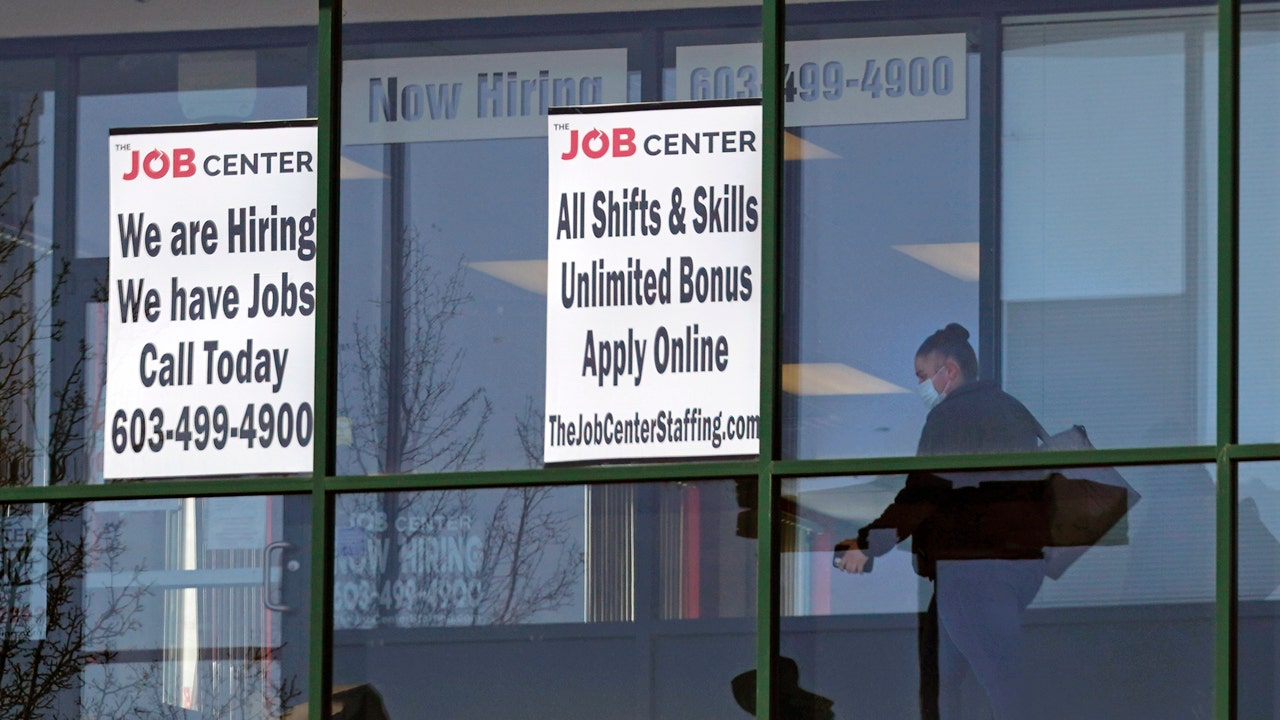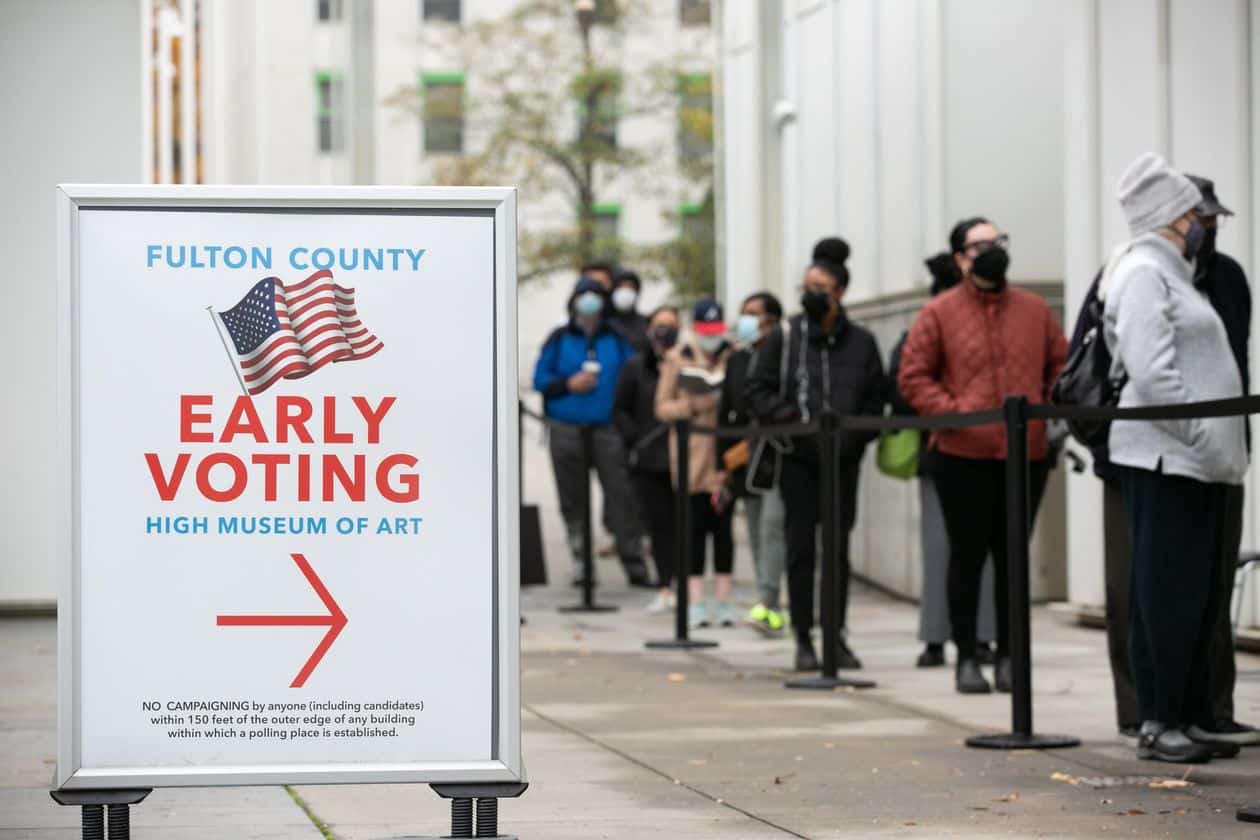 As teachers welcome students back into the classroom, it is important to establish good habits and routines for the new school year. One important habit is incorporating current issues discussions into civics, social studies, and humanities courses. To help teachers get started on the right foot, we’re offering a round-up of some of the most important news stories of the past month and some discussion questions to engage students.
As teachers welcome students back into the classroom, it is important to establish good habits and routines for the new school year. One important habit is incorporating current issues discussions into civics, social studies, and humanities courses. To help teachers get started on the right foot, we’re offering a round-up of some of the most important news stories of the past month and some discussion questions to engage students.
Infrastructure Bill Moves Forward
President Joe Biden’s administration cleared an important hurdle in its efforts to pass a massive infrastructure bill through Congress with a 69-30 vote in the Senate. Although the $1.2 trillion bill still needs House approval before the president can sign it, it has the potential to be the largest infrastructure investment ever passed by Congress.1
The bill needed at least 60 votes to pass the Senate. The Senate is currently split 50-50 between Republicans and Democrats, with Vice President Kamala Harris acting as the tie-breaking vote. This breakdown, combined with Republicans’ use of the filibuster, means that for virtually any legislation to pass the Senate, Democrats must gain the support of at least 10 Republican senators.2 Given how strong the partisan divide in Congress has been for more than a decade, many Americans were skeptical that the Senate could reach any bipartisan agreement, with some urging senators to abolish the filibuster requirement of 60 votes. To the surprise of many, Senate Democrats were able to secure the support of not just ten but 19 Republican senators.3
LEARN MORE about the infrastructure bill and related issues
With the bill now in the House, it is almost a certainty that it will eventually pass but it remains unclear how long that will take and what the bill will contain by that time. Currently, the bill allocates funding for building new roads, bridges, and railways; repairing existing transportation infrastructure; and expanding broadband internet, clean air and water infrastructure, power systems, and pollution clean-up.4 The bill also represents a significant scaling back of the original $2.6 trillion plan, with the biggest changes being in the removal of many of the environmental initiatives.
House Democrats, including Speaker of the House Nancy Pelosi, D-Calif., have said they will not support the new infrastructure bill unless much of the removed environmental funding is added to a $3.5 trillion budget reconciliation bill. Negotiating this process could take weeks if not months. However, since budget reconciliation bills require only 50 votes in the Senate, much of the additional spending could be signed into law with or without Republican support.5
The United States’ Infrastructure Report Card
Discussion Questions
- Why do you think the Senate was able to reach a bipartisan agreement on the infrastructure bill (keeping in mind that the original bill was $2.6 trillion while the final bill is $1.2 trillion)?
- Should Congress continue to pursue bipartisanship? Or should congressional Democrats seek to pass their policies regardless of Republican support?
Afghanistan Withdrawal and the Taliban Offensive
In April 2021, President Biden announced that he would press ahead with the withdrawal of all remaining U.S. troops from Afghanistan, a move first sought by President Donald Trump’s administration. President Biden set September 11, 2021, as the deadline for withdrawal, coinciding with the 20th anniversary of the 9/11 attacks (which were the impetus for the conflict).6 The United States has had combat troops continuously operating in Afghanistan since October 7, 2001, making this conflict the longest continuous military conflict in U.S. history.7

In recent weeks, the Taliban, a militant group of Islamic fundamentalists, has launched successful offensives across Afghanistan as U.S. troops and officials have withdrawn. Prior to the war in Afghanistan, the United States assisted the Taliban in its efforts to combat an invasion by the Soviet Union in the 1980s. After repelling the Soviets, the Taliban became the ruling authority during the 1990s. The group also forged connections with and harbored al-Qaeda, the terrorist organization controlled by Osama bin Laden that carried out the 9/11 attacks.8
LEARN MORE about the modern history of Afghanistan
The U.S.-led invasion of Afghanistan overthrew the Taliban in 2001. However, despite U.S. support over the past 20 years, the new government of Afghanistan has struggled to govern the country effectively as it has been plagued by corruption and infighting. The U.S.-trained Afghan military and police forces have not fared any better, offering little resistance to the Taliban’s resurgence. In recent days, the Taliban seized control of Kabul, the Afghan capital, and declared itself the only legitimate government of the country.9 Many Afghanis who worked with U.S. forces now fear for their lives, as the Taliban is notorious for torturing and executing those whom it considers to be traitors.10 The swift pace of the Taliban takeover, downplayed as “highly unlikely” by President Biden in July, has prompted both the United States and the United Kingdom to deploy thousands of additional troops to Afghanistan to protect evacuation efforts out of Kabul.11
LEARN MORE directly from lawmakers about the withdrawal from Afghanistan
Discussion Questions
- Do you agree with the decision to withdraw from Afghanistan even if it means surrendering the country back to the Taliban?
- What obligation, if any, does the United States have to those who support U.S. troops in countries where those troops are engaged in military action?
The Delta Variant and Mask Mandates
On May 13, 2021, President Biden celebrated an end to nearly all outdoor mask mandates and most indoor mask mandates for individuals fully vaccinated against COVID-19. This announcement was heralded as a turning point on the road “back to normal.”12 However, as a vaccination rates began to plateau, it became apparent that a significant portion of the U.S. population (18 percent) had no intention of getting vaccinated.13 Disease experts feared that with such a large cohort of people refusing the vaccines, COVID-19 would continue to mutate and spread.14
There have been dozens of such mutations, with more virulent and contagious strains emerging. Particularly widespread in the United States and abroad is the Delta variant and its subvariants. The Delta variant is estimated to be twice as contagious as other variants, with some data suggesting it might cause more severe illness in unvaccinated persons than previous strains.15 It is important to note that all available data indicates that the COVID-19 vaccines are highly effective against the Delta variant. Almost all COVID-19 cases, hospitalizations, and deaths have occurred among people who are not vaccinated or not yet fully vaccinated.16 Still, as infection and hospitalization rates rose, the Centers for Disease Control and Prevention (CDC) updated its guidance for indoor masking and social distancing.
LEARN MORE about the impact of vaccination
In August, Arkansas set a record for hospitalizations, while health officials in Mississippi said that the state’s hospital system could collapse in a matter of days if the current caseload trajectory continues.17 This resurgence of COVID-19 cases across the country has prompted some areas to issue new mask mandates and others to refuse to issue new rules that follow federal guidance and CDC recommendations.18 Recently, some schools in Texas, Florida, and other highly impacted states refused to comply with their governors’ bans on mask mandates. And some schools and businesses around the country have begun to mandate vaccination for their employees and patrons.19
HEAR FROM lawmakers about the impacts of COVID-19 on students
Discussion Questions
- With the Delta variant on the rise, should schools be allowed to mandate that students and teachers wear masks? Should schools be returning to in-person classes?
- Many public schools in the United States already require vaccinations against illnesses such as measles, mumps, rubella, chickenpox, and polio. Some of these illnesses are rarely fatal; others have the potential to be more harmful or deadly than COVID-19. Vaccination against COVID-19 is already available to those 12 or older and it is expected to become available for younger children pending approval. Should public schools be allowed to mandate vaccination against COVID-19 when it becomes available?
The IPCC Climate Report
On August 9, 2021, the United Nations’ Intergovernmental Panel on Climate Change (IPCC), a group of thousands of climate experts from 195 member nations, issued a dire report on the state of Earth’s climate and its implications for humanity’s immediate and long-term survival.20 The report states that human beings are “unequivocally” causing climate change and that the world may inevitably cross the 1.5oC overall temperature increase that has long been cited as a point of no return by climate scientists.21
Drawn from data from over 14,000 studies, the IPCC report details that once-in-50-year heatwaves now occur at least once a decade, and that historic flooding, hurricanes, and drought are to be expected for decades if not centuries to come. UN Secretary General António Guterres called the report a “code red for humanity.”22
HEAR FROM lawmakers about their views on climate change and how to address it
Currently, vast stretches of the North American Pacific Coast, Siberia, the Mediterranean, and dozens of other places are experiencing wildfires of unprecedented scope.23 In July, historic flooding occurred in Western Europe, killing more than 200 people with almost 200 more still missing.24 And with the COVID-19 pandemic still ongoing, disease and climate experts warn that climate change will contribute to new outbreaks of illnesses, particularly as mosquito populations spread with warmer weather.25
Leaders from around the world will meet in Glasgow, Scotland, in November 2021 for a climate change conference. Climate activists and scientists are hopeful that leaders will be receptive to more aggressive policies to cut down on carbon emissions. The United States rejoined the Paris Agreement in February 2021, but climate advocates now argue that the targets set under that agreement are inadequate.26
VIEW the IPCC report and its implications
Discussion Questions
- Should the United States do more to combat climate change? If so, what sorts of actions should it take? If not, how should this challenge be addressed?
- The UN is an organization made up of voluntary members. Ultimately, it has little power to compel countries to comply with any resolution or recommendation it makes. This is particularly true of large, economically powerful countries. The United States, Russia, and China, in addition to being among the biggest producers of fossil fuel emissions, are permanent members of the UN Security Council, each with the individual authority to override any decision made by the UN. With the climate threat as imminent as the UN says it is, can the world actually take unified action to address it?
As always, we encourage you to join the discussion with your comments or questions below!
Related Blog Posts:
Build it and They Will Come – The Biden Infrastructure Plan
How Can We Overcome Vaccine Skepticism?
Time to Reform the Filibuster?
Sources
Featured Image Credit: David Carpio/Shutterstock
[1] https://www.nytimes.com/2021/08/10/us/politics/infrastructure-bill-passes.html
[2] CNN News: https://www.cnn.com/interactive/2021/05/politics/filibuster-senate-explained/
[4] Ibid.
[4] https://www.nytimes.com/interactive/2021/07/28/upshot/infrastructure-breakdown.html
[5] https://www.nytimes.com/2021/07/13/us/politics/infrastructure-deal-budget.html
[6] https://www.whitehouse.gov/briefing-room/speeches-remarks/2021/07/08/remarks-by-president-biden-on-the-drawdown-of-u-s-forces-in-afghanistan/
[7] https://www.usnews.com/news/politics/articles/2021-07-12/the-cost-of-the-afghanistan-war-in-lives-and-dollars#:~:text=The%20nearly%2020%2Dyear%20American,the%20United%20States’%20longest%20war.&text=July%2012%2C%202021%2C%20at%202%3A28%20p.m.&text=KNICKMEYER%2C%20Associated%20Press-,The%20nearly%2020%2Dyear%20American%20combat%20mission%20in%20Afghanistan,the%20United%20States’%20longest%20war.
[8] https://www.bbc.com/news/world-south-asia-11451718
[9] https://www.tribuneindia.com/news/world/taliban-to-declare-islamic-emirate-of-afghanistan-official-297971
[10] https://www.hrw.org/news/2021/07/23/afghanistan-threats-taliban-atrocities-kandahar
[11] https://www.nbcnews.com/news/world/panic-grips-afghanistan-civilians-flee-taliban-s-relentless-advance-n1276528
[12] https://www.nbcnews.com/politics/white-house/white-house-celebrates-new-end-mask-requirement-fully-vaccinated-n1267285
[13] https://today.yougov.com/topics/politics/articles-reports/2021/07/15/why-wont-americans-get-vaccinated-poll-data
[14] https://www.fox5atlanta.com/news/coronavirus-variants-experts-fear-mutations-could-mean-covid-19-reinfections
[15] https://www.cdc.gov/coronavirus/2019-ncov/variants/delta-variant.html
[16] https://www.kff.org/policy-watch/covid-19-vaccine-breakthrough-cases-data-from-the-states/
[17] https://www.npr.org/2021/08/12/1027103023/florida-mississippi-arkansas-hospitals-overwhelmed-covid-19-delta
[18] https://www.cdc.gov/coronavirus/2019-ncov/vaccines/fully-vaccinated-guidance.html
[19] https://floridanewstimes.com/half-a-dozen-school-districts-are-arguing-or-arguing-to-disobey-the-governors-no-mask-mandate-order/320862/
[20] https://www.ucsusa.org/resources/ipcc-who-are-they
[21] https://www.reuters.com/business/environment/un-sounds-clarion-call-over-irreversible-climate-impacts-by-humans-2021-08-09/
[22] Ibid.
[23] https://gizmodo.com/here-are-the-5-major-regions-literally-on-fire-right-no-1847389046/slides/8
[24] https://www.cnn.com/2021/07/22/europe/germany-belgium-europe-floods-death-climate-intl/index.html
[25] https://earth.stanford.edu/news/how-does-climate-change-affect-disease#gs.8c0zs7
[26] https://www.bbc.com/news/science-environment-56901261
 After April’s jobs report fell short of predictions and unemployment ticked up for the first time in the last year, some politicians and policymakers, particularly conservatives, called for an end to the generous unemployment insurance (UI) benefits that have been place since the beginning of the COVID-19 pandemic.1
After April’s jobs report fell short of predictions and unemployment ticked up for the first time in the last year, some politicians and policymakers, particularly conservatives, called for an end to the generous unemployment insurance (UI) benefits that have been place since the beginning of the COVID-19 pandemic.1
 A ceasefire has brought an end to weeks of increasing violence between Israel and the Palestinian communities in the territory it controls, particularly the Palestinian Islamic-nationalist group Hamas. This latest outbreak of conflict ended a period of relative calm that had persisted for the better part of a decade. Adding to the complexity of the Israeli-Palestinian conflict is the role of the United States and emerging disagreements over what the nature of that role should be.
A ceasefire has brought an end to weeks of increasing violence between Israel and the Palestinian communities in the territory it controls, particularly the Palestinian Islamic-nationalist group Hamas. This latest outbreak of conflict ended a period of relative calm that had persisted for the better part of a decade. Adding to the complexity of the Israeli-Palestinian conflict is the role of the United States and emerging disagreements over what the nature of that role should be. President Joe Biden is currently promoting his plan to transform the U.S. economy.1 In a previous
President Joe Biden is currently promoting his plan to transform the U.S. economy.1 In a previous  President Joe Biden is currently campaigning to promote his administration’s infrastructure plan. The plan is intended to address three main areas of concern: crumbling or inadequate infrastructure, job creation and economic growth, and environmental issues. In this post, we will focus on the infrastructure goals of the plan.
President Joe Biden is currently campaigning to promote his administration’s infrastructure plan. The plan is intended to address three main areas of concern: crumbling or inadequate infrastructure, job creation and economic growth, and environmental issues. In this post, we will focus on the infrastructure goals of the plan. On April 3, 2021, the Georgia General Assembly passed the Election Integrity Act of 2021. This new voting law enacts sweeping changes to Georgia’s election system which could have significant implications for the outcome of future elections. Republicans in Georgia and across the United States have hailed the law as a vital and necessary reform to enhance the security of elections, with similar measures coming before legislatures in Arizona, Florida, Iowa, and Texas.1 Democrats, including President Joe Biden and Georgia voting activist Stacey Abrams, have described the law as modern day Jim Crow, invoking the obstacles put in place prior to the Voting Rights Act of 1965 to prevent people of color from voting throughout the American South.2,3
On April 3, 2021, the Georgia General Assembly passed the Election Integrity Act of 2021. This new voting law enacts sweeping changes to Georgia’s election system which could have significant implications for the outcome of future elections. Republicans in Georgia and across the United States have hailed the law as a vital and necessary reform to enhance the security of elections, with similar measures coming before legislatures in Arizona, Florida, Iowa, and Texas.1 Democrats, including President Joe Biden and Georgia voting activist Stacey Abrams, have described the law as modern day Jim Crow, invoking the obstacles put in place prior to the Voting Rights Act of 1965 to prevent people of color from voting throughout the American South.2,3






